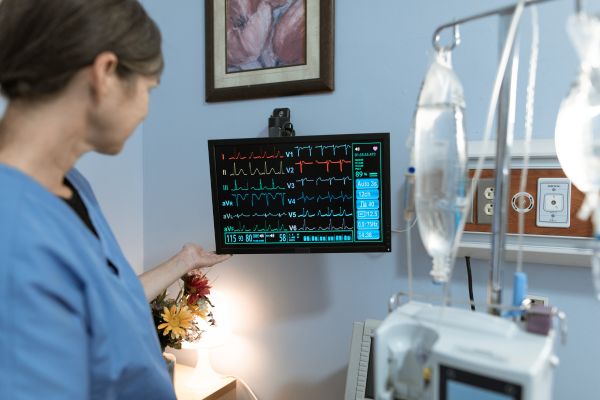Accelerated Nursing Programs: Fast-Track Your Way to a Nursing Career
The healthcare industry continues to face critical nursing shortages across the United States and globally. With an aging population requiring more medical care and many experienced nurses approaching retirement, the demand for qualified nursing professionals has never been higher. Accelerated nursing programs have emerged as a vital solution to address this growing need by creating an efficient pathway for career-changers and motivated students to enter the nursing profession quickly.
These intensive programs offer a condensed timeline for earning a nursing degree, allowing students to complete their education in significantly less time than traditional programs. Designed specifically for individuals who already hold a bachelor’s degree in another field, accelerated nursing programs recognize prior academic achievement and focus exclusively on essential nursing coursework and clinical training.
For those considering a career transition into nursing or looking to expedite their nursing education, accelerated programs provide a compelling option. This comprehensive guide explores everything prospective students need to know about accelerated nursing programs, from admission requirements and program structures to financial considerations and career outcomes.
What Are Accelerated Nursing Programs?
Accelerated nursing programs are intensive educational pathways designed for individuals who already possess a bachelor’s degree in a non-nursing field. These programs allow students to leverage their previous education and earn a nursing degree in a compressed timeframe. Depending on the degree sought, students can complete their nursing education in as little as 11-18 months, compared to the traditional two to four years required for conventional programs.
Types of Accelerated Nursing Programs
Accelerated programs exist for various nursing degrees, each serving different career goals:
Accelerated Bachelor of Science in Nursing (ABSN)
The ABSN program is the most common accelerated option, allowing students to earn a BSN degree in 11-18 months of continuous study. These programs build upon students’ previous bachelor’s degrees, focusing exclusively on nursing theory and clinical practice without requiring general education courses. The ABSN serves as the quickest route to becoming a registered nurse (RN) for those with existing bachelor’s degrees.
Accelerated Master of Science in Nursing (MSN)
For those looking to advance beyond entry-level nursing positions quickly, accelerated MSN programs offer a direct pathway to advanced practice roles. These programs typically take 2-3 years to complete and prepare graduates for specialized nursing roles such as nurse practitioner, clinical nurse specialist, nurse anesthetist, or nurse-midwife. Some accelerated MSN programs are designed for non-nurses with bachelor’s degrees, while others require BSN completion first.
Direct-Entry Master’s Programs
These programs allow non-nursing bachelor’s degree holders to earn both a BSN and MSN in a single accelerated program. While longer than a standalone ABSN (usually 2-3 years), they offer a faster route to advanced practice nursing roles than completing separate degrees sequentially.
Program Structure and Format
Accelerated nursing programs maintain the same rigorous curriculum standards as traditional programs but deliver content in a compressed timeframe. This intensity is achieved through:
Year-Round Study
Unlike traditional programs with summer breaks, accelerated programs run continuously through the calendar year. Students attend classes during fall, spring, and summer terms without extended breaks.
Full-Time Commitment
These programs require full-time study with course loads often exceeding those of traditional programs. Students typically take 15-20 credit hours per term and attend classes 4-5 days per week.
Clinical Rotations
Alongside classroom learning, students complete extensive clinical hours in various healthcare settings. Clinical rotations may be scheduled during evenings, nights, or weekends to accommodate the accelerated timeline.
Hybrid and Online Options
Many accelerated programs now offer hybrid formats with online coursework supplemented by in-person clinical experiences. Some programs deliver all theoretical content online, requiring students to arrange clinical placements in their local communities.
Admission Requirements
Accelerated nursing programs maintain competitive admission standards due to their intensive nature and high demand. Prospective students must typically meet the following requirements:
Academic Prerequisites
Bachelor’s Degree
A completed bachelor’s degree from an accredited institution is the fundamental requirement for all accelerated nursing programs. While the degree can be in any field, degrees in biology, psychology, or other sciences may provide helpful background knowledge.
Minimum GPA
Most programs require a minimum undergraduate GPA of 3.0, though more competitive programs may expect higher academic achievement. Some institutions consider the GPA in prerequisite coursework more heavily than the overall undergraduate GPA.
Prerequisite Courses
Despite coming from diverse academic backgrounds, applicants must complete specific science and health-related prerequisite courses before beginning an accelerated nursing program. Common prerequisites include:
- Anatomy and Physiology (often two semesters with labs)
- Microbiology with lab
- Chemistry with lab
- Statistics
- Human Growth and Development or Developmental Psychology
- Nutrition
- Psychology
Some programs may accept students who haven’t completed all prerequisites but require completion before the program starts.
Additional Requirements
Entrance Exams
Many programs require standardized test scores, most commonly the Test of Essential Academic Skills (TEAS) or the Graduate Record Examination (GRE) for master’s-level programs. These exams assess aptitude in areas relevant to nursing education.
Healthcare Experience
While not always mandatory, many programs favor applicants with prior healthcare experience, such as work as a certified nursing assistant (CNA), emergency medical technician (EMT), or medical assistant.
Personal Statement and Interviews
Applicants typically submit personal statements explaining their motivation for pursuing nursing and may participate in individual or group interviews to demonstrate interpersonal skills and commitment to the profession.
References
Letters of recommendation from academic instructors or professional supervisors help admissions committees assess applicants’ potential for success in a rigorous academic environment.
Background Check and Health Requirements
Given that students will work directly with patients, programs require criminal background checks, drug screenings, immunization records, and health examinations before clinical placements.
The Accelerated Nursing Experience
Understanding the day-to-day reality of accelerated nursing programs helps prospective students prepare for this challenging yet rewarding educational journey.
Academic Intensity
Accelerated programs compress the same nursing curriculum taught in traditional programs into roughly half the time. This acceleration means:
Dense Course Scheduling
Students may take multiple complex courses simultaneously, with limited time between terms for material review or recuperation.
Rapid Progression
Topics that might be covered over several weeks in traditional programs may be condensed into days or a single week in accelerated formats.
Immediate Application
Theoretical concepts are often immediately applied in laboratory or clinical settings, requiring students to quickly synthesize and implement new knowledge.
Clinical Experience
Despite the accelerated timeline, these programs maintain the same clinical hour requirements as traditional nursing programs, ensuring graduates develop necessary hands-on skills:
Diverse Clinical Settings
Students rotate through various healthcare environments, including hospitals, community health centers, long-term care facilities, and specialty clinics.
Skills Development
Clinical experiences progress from basic nursing skills to complex care management, with increasing independence as students advance through the program.
Preceptorships
Many accelerated programs culminate in intensive preceptorships where students work alongside experienced nurses in settings aligned with their career interests.
Student Life and Balance
The demanding nature of accelerated programs significantly impacts students’ personal lives:
Limited Work Capacity
Program directors typically discourage students from working during their studies due to the intensive time commitment. Those who must work usually limit employment to 10-15 hours weekly.
Support Systems
Successful students often rely heavily on family, friends, and classmates for emotional support and practical assistance with daily responsibilities.
Cohort Model
Most accelerated programs use a cohort model where students progress through the curriculum as a group. This structure fosters strong peer support networks that prove invaluable during challenging periods.
Financing Your Accelerated Nursing Education
The concentrated nature of accelerated programs affects both their cost and financing options. Understanding the financial landscape helps students plan appropriately for this investment.
Program Costs
Tuition
Accelerated BSN programs typically cost between $40,000 and $80,000 at private institutions and $20,000 to $40,000 at public universities for in-state students. While this may seem comparable to traditional programs, remember that accelerated programs condense costs into a shorter timeframe, requiring more immediate financial resources.
Additional Expenses
Beyond tuition, students must budget for:
- Textbooks and digital learning resources
- Clinical uniforms and equipment
- Technology requirements (laptop, software, reliable internet)
- NCLEX-RN examination and licensure fees
- Health insurance and immunizations
- Transportation to clinical sites
- Living expenses during a period of limited income-earning capacity
Financial Aid Options
Federal Student Aid
Students in accelerated BSN programs qualify for federal financial aid by completing the Free Application for Federal Student Aid (FAFSA). Available aid includes Direct Unsubsidized Loans and Graduate PLUS Loans for graduate-level programs.
Scholarships
Numerous scholarships target accelerated nursing students specifically, offered by:
- The school of nursing or parent institution
- Healthcare organizations and hospitals
- Professional nursing associations
- Private foundations focused on healthcare workforce development
- State workforce initiatives addressing nursing shortages
Loan Forgiveness Programs
After graduation, nurses may qualify for loan forgiveness through:
- Public Service Loan Forgiveness for those working in qualifying public service positions
- Nurse Corps Loan Repayment Program for those working in critical shortage facilities
- State-specific loan repayment programs targeting underserved areas
Employer Tuition Assistance
Some healthcare employers offer tuition assistance or reimbursement for current employees pursuing nursing education, often with a work commitment following graduation.
Work-Study and Graduate Assistantships
Though limited due to the intensive nature of accelerated programs, some institutions offer work-study positions or graduate assistantships that provide tuition reduction in exchange for work within the nursing department.
Choosing the Right Accelerated Program
With hundreds of accelerated nursing programs available nationwide, prospective students should consider multiple factors when selecting the program that best meets their needs.
Accreditation
The most crucial consideration when evaluating any nursing program is proper accreditation:
Program Accreditation
Look for programs accredited by either the Commission on Collegiate Nursing Education (CCNE) or the Accreditation Commission for Education in Nursing (ACEN). These accreditations ensure the program meets established quality standards and is recognized by employers and graduate schools.
Institution Accreditation
The college or university should hold regional accreditation, indicating the overall institution meets academic standards.
NCLEX Pass Rates
A program’s National Council Licensure Examination (NCLEX) pass rates offer insight into how well it prepares students for professional practice:
First-Time Pass Rates
Strong programs typically maintain first-time NCLEX pass rates at or above 90%, significantly higher than the national average.
Trend Analysis
Examine pass rates over several years to identify consistent performance rather than isolated strong or weak results.
Clinical Opportunities
Clinical experiences significantly impact educational quality and graduate preparedness:
Clinical Placement Process
Some programs assign students to clinical sites, while others require students to secure their own placements. The latter approach may present challenges for students in competitive healthcare markets.
Clinical Partners
Programs with established relationships with prestigious or diverse healthcare facilities offer valuable learning opportunities and potential employment connections.
Simulation Resources
High-quality simulation laboratories complement clinical experiences by allowing students to practice complex skills in controlled environments before patient interactions.
Program Format and Flexibility
Consider how the program structure aligns with your learning preferences and personal circumstances:
Location and Relocation
Programs may require relocation or lengthy commutes to campus and clinical sites. Online or hybrid options might offer greater flexibility but require strong self-discipline.
Program Timeline
Programs range from 11 to 24 months for ABSN degrees. Shorter programs offer faster entry into the workforce but with greater intensity, while slightly longer programs may provide more balanced experiences.
Prerequisite Flexibility
Some programs allow students to complete prerequisites while beginning nursing coursework, while others require completion of all prerequisites before admission.
Cost and Value
Financial considerations should balance immediate costs against long-term value:
Public vs. Private Institutions
Public universities typically offer lower tuition rates, particularly for in-state residents, though private institutions may provide more generous financial aid packages.
Geographic Considerations
Programs in areas with higher costs of living increase the overall financial burden beyond tuition expenses.
Employment Outcomes
Research job placement rates, starting salaries for program graduates, and career advancement opportunities in your desired practice location.
Life After Graduation
Accelerated nursing program graduates enter the workforce with distinct advantages and face important decisions about their early career paths.
NCLEX Preparation and Licensure
Immediately following graduation, new nurses focus on obtaining licensure:
NCLEX-RN Examination
All nursing graduates must pass the NCLEX-RN to become licensed registered nurses. Accelerated program graduates typically take this examination within 1-3 months of program completion.
State Licensure Requirements
Beyond the NCLEX, state nursing boards may have additional requirements for licensure, including background checks and fingerprinting.
Employment Prospects
Accelerated program graduates often find themselves well-positioned in the job market:
Hiring Advantages
Many employers value the diverse educational backgrounds and proven academic capabilities of accelerated program graduates. Their prior degrees and life experiences often translate to maturity, critical thinking skills, and unique perspectives in patient care.
Potential Employers
Common employment settings for new graduates include:
- Acute care hospitals (most common initial placement)
- Outpatient clinics and surgery centers
- Rehabilitation facilities
- Long-term care settings
- Home health agencies
- Public health departments
- Corporate health services
Residency Programs
Nurse residency programs offer structured transitions from student to professional practice with additional mentoring and skill development. Many major healthcare systems now offer these programs specifically for new graduates.
Career Advancement
The accelerated path to nursing offers numerous opportunities for continued growth:
Specialty Certification
After gaining experience in a particular specialty, nurses can pursue certification in areas such as critical care, emergency, perioperative, or oncology nursing to demonstrate expertise and increase marketability.
Graduate Education
Many accelerated program graduates pursue advanced degrees after gaining clinical experience, with pathways to roles such as:
- Nurse Practitioner
- Clinical Nurse Specialist
- Nurse Anesthetist
- Nurse-Midwife
- Nurse Educator
- Nurse Administrator
- Nurse Researcher
Career Diversity
The nursing profession offers remarkable versatility, allowing professionals to transition between clinical specialties, settings, and roles throughout their careers while building on their foundational education.
Challenges and Considerations
While accelerated nursing programs offer significant benefits, prospective students should realistically assess potential challenges:
Academic Demands
The compressed timeline creates unique academic pressures:
Content Volume and Pace
Students must absorb and integrate complex concepts rapidly, with limited time for review or remediation if struggles occur.
Risk of Academic Difficulty
The intensive format leaves little margin for error, with academic difficulties potentially resulting in program dismissal after significant financial investment.
Limited Elective Opportunities
The focused curriculum typically lacks elective options that might allow exploration of special interests within nursing.
Personal Considerations
The program intensity extends beyond academics to affect personal life:
Financial Strain
The inability to work full-time during the program creates financial pressure for many students, particularly those with existing financial obligations.
Work-Life Integration
The intensive schedule makes maintaining personal relationships, family responsibilities, and self-care activities challenging.
Physical and Mental Health
The combination of academic pressure, clinical stress, and limited recovery time can affect student wellbeing, requiring proactive stress management strategies.
Program Completion Considerations
Successfully completing an accelerated program requires preparation and support:
Support Networks
Establishing strong support systems before beginning the program helps students manage both practical needs and emotional challenges.
Realistic Expectations
Understanding the true demands of the program allows for appropriate life adjustments and preparation strategies.
Self-Care Strategies
Developing efficient study habits, stress management techniques, and wellness practices before beginning the program helps maintain resilience.
Is an Accelerated Nursing Program Right for You?
Determining whether an accelerated program aligns with your circumstances involves honest self-assessment:
Ideal Candidate Profile
Successful accelerated nursing students typically demonstrate:
Academic Strength
Strong performance in prerequisite courses and previous degree programs indicates readiness for the academic rigor.
Effective Time Management
The ability to prioritize tasks, maintain organization, and work efficiently under pressure supports success in these intensive programs.
Resilience and Adaptability
Emotional stability and the capacity to adjust to changing circumstances help students navigate program challenges.
Healthcare Affinity
Genuine interest in patient care and comfort with healthcare environments prepares students for clinical experiences.
Strong Support System
Family and friends who understand the program demands and can provide practical and emotional support enhance student success.
Alternative Pathways to Consider
For those concerned about accelerated program demands, alternatives include:
Traditional BSN Programs
These four-year programs offer a more moderately paced nursing education for those without prior bachelor’s degrees.
RN-to-BSN Programs
After completing an associate degree in nursing and obtaining RN licensure, students can complete bachelor’s-level education while working as nurses.
Part-Time Nursing Programs
Some institutions offer extended timeline options for second-degree students who need to continue working while pursuing nursing education.
Conclusion
Accelerated nursing programs represent a significant innovation in nursing education, offering an efficient pathway for career-changers and motivated students to enter the nursing profession. These programs address critical healthcare workforce needs while providing substantial benefits for qualified students willing to embrace their intensity.
The accelerated route to nursing requires commitment, resilience, and careful planning. Prospective students must honestly assess their academic capabilities, personal circumstances, and support systems before embarking on this challenging educational journey. For those well-suited to the demands, however, accelerated programs offer an unparalleled opportunity to transition quickly into a rewarding healthcare career with strong employment prospects and extensive growth potential.
As healthcare continues to evolve and nursing shortages persist across many specialties and regions, accelerated nursing graduates will remain valuable additions to the workforce. Their diverse educational backgrounds, proven academic capabilities, and unique life experiences bring fresh perspectives to patient care challenges, potentially driving innovation in healthcare delivery.
Whether pursuing an accelerated BSN to begin clinical practice quickly or an accelerated MSN to advance directly into specialized roles, graduates of these programs demonstrate exceptional dedication to their professional development and commitment to patient care. Their accelerated educational journey is just the beginning of lifelong learning within the ever-evolving nursing profession.







